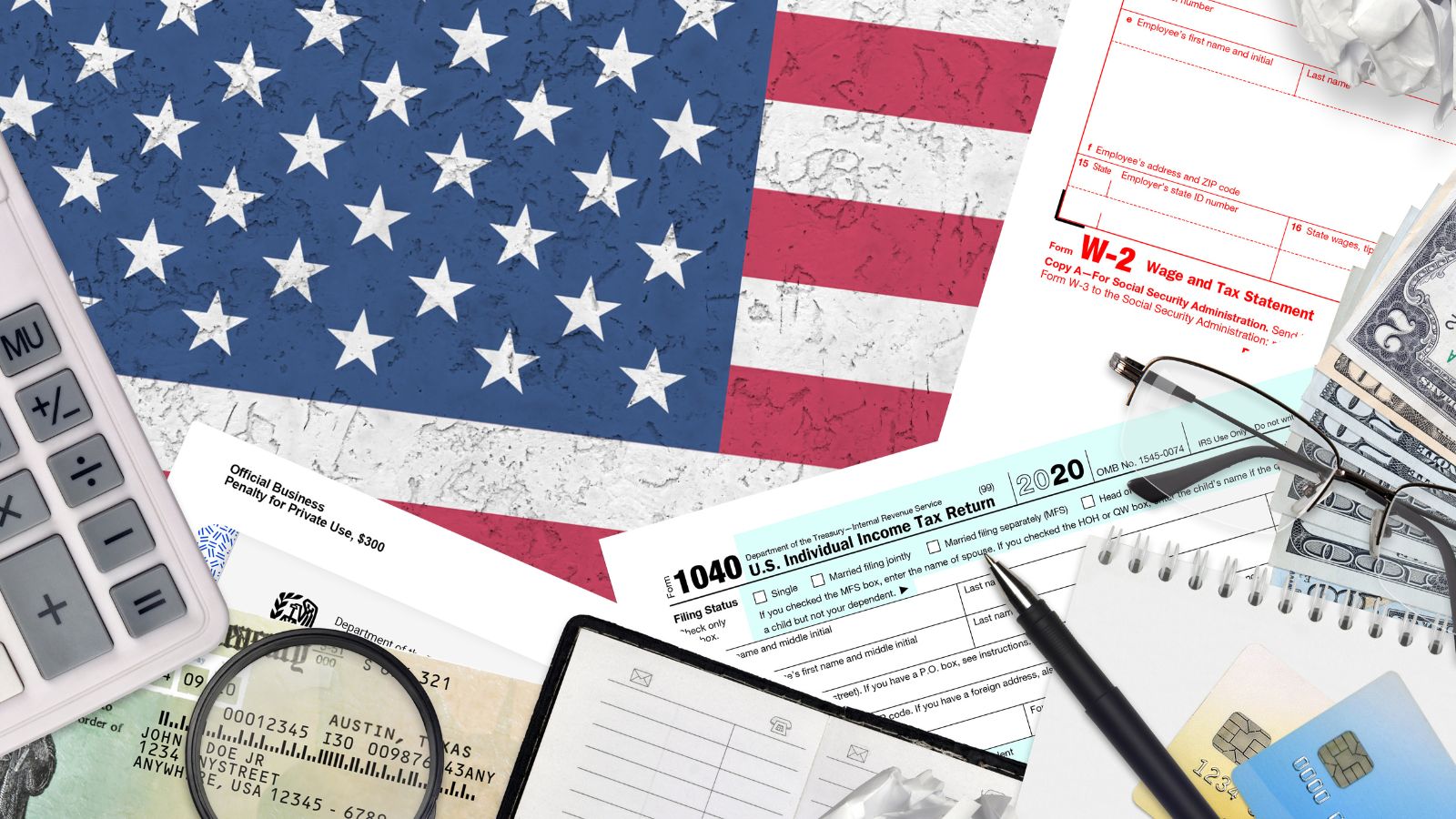In today’s fast-paced world, achieving and maintaining financial independence is a goal many strive for. However, several factors can jeopardize this independence. Here are 20 eye-opening signs that your financial independence might be at risk in 2024, along with actionable insights to help you safeguard your financial future.
High Debt Levels

Carrying significant debt, especially from high-interest debt like credit cards, can severely impact your financial independence. They drain your finances, making it difficult to save and invest. To mitigate this risk, prioritize paying down high-interest debt and consider consolidating loans to lower interest rates. Reducing your debt burden can free up resources for savings and investments, helping you achieve and maintain financial stability.
Living Paycheck to Paycheck

If you struggle to save and rely on each paycheck to cover expenses, your financial independence is at risk. To break this cycle, create a budget to track spending, identify areas to cut back, and prioritize saving. Building an emergency fund and reducing unnecessary expenses can help you achieve greater financial security and peace of mind.
No Emergency Fund

Having no emergency fund leaves you vulnerable to unexpected expenses, such as medical bills or car repairs, which can derail your financial plans. This lack of a safety net can force you into debt or disrupt your financial stability. To mitigate this risk, aim to save three to six months’ worth of living expenses in an easily accessible account. Building an emergency fund provides a crucial buffer against financial shocks.
Inadequate Retirement Savings

Inadequate retirement savings can jeopardize your future financial security, leaving you reliant on limited income sources during retirement. You may struggle to cover living expenses and healthcare costs without sufficient savings. To address this, take advantage of employer-sponsored retirement plans and consider opening an IRA. Regularly review and increase your contributions to ensure you’re on track to meet your retirement goals and maintain financial independence.
Poor Credit Score

A low credit score can lead to higher borrowing costs and limited financial options. It can make securing loans, mortgages, or even rent an apartment difficult. To improve your credit score, regularly check your credit report for errors, pay bills on time, reduce outstanding debt, and avoid opening too many new credit accounts. A better credit score opens up more financial opportunities.
Lack of Budgeting

Lack of budgeting can severely impact your financial independence by making it difficult to manage your money effectively. Without a budget, you may overspend, miss savings opportunities, and struggle to achieve financial goals. Use budgeting tools or apps to track your income and expenses to address this. Creating and sticking to a budget helps you control your finances, prioritize spending, and build a secure financial future.
Overspending

Overspending can jeopardize your financial independence by consistently draining your resources and preventing you from saving or investing. When you spend more than you earn, it leads to debt and economic instability. To combat overspending, identify non-essential expenses and cut back. Implementing a budget can help you track your spending and ensure you live within your means, ultimately fostering a more secure financial future.
No Investment Strategy

No investment strategy can hinder your ability to grow wealth and achieve financial independence. Without investing, your money may not keep pace with inflation, reducing its purchasing power over time. Educate yourself on different investment options to develop an effective investment strategy and consider working with a financial advisor. A well-planned investment strategy can help you build wealth, diversify your portfolio, and secure your financial future.
Ignoring Inflation

Ignoring inflation can erode your purchasing power over time, making it harder to maintain your standard of living. Without accounting for inflation, your savings and investments may not grow sufficiently to keep up with rising costs. Invest in assets that typically outpace inflation, such as stocks and real estate, to combat this. Regularly review your financial plan to ensure it includes strategies to mitigate the impact of inflation.
Dependence on a Single Income Source

Dependence on a single income source can be risky, as any disruption to that income stream can jeopardize your financial stability. Diversifying your income sources can provide a safety net and reduce this risk. Consider exploring side hustles, freelance work, or passive income opportunities like investments or rental properties. Diversification not only enhances financial security but also opens up new avenues for growth and independence.
High Fixed Expenses

High fixed expenses, such as rent or mortgage payments, can limit your financial flexibility and strain your budget. These significant, recurring costs can make it challenging to save and invest. To manage high fixed expenses, consider downsizing your living arrangements or refinancing your mortgage to lower monthly payments. Reducing these costs can free up funds for savings and investments, helping you achieve greater financial stability and independence.
Lack of Financial Goals

Lack of financial goals can hinder your progress towards financial independence by leaving you without a clear direction or motivation. Without specific targets, it’s challenging to prioritize saving, investing, and spending. To address this, set both short-term and long-term financial goals. Regularly review and adjust these goals to stay on track. Clear financial objectives provide a roadmap for your financial journey, helping you achieve stability and independence.
Uncontrolled Lifestyle Inflation

Uncontrolled lifestyle inflation occurs when your spending increases as your income rises, preventing you from saving and investing effectively. This can jeopardize your financial independence by creating a cycle of living beyond your means. To combat lifestyle inflation, maintain a modest lifestyle and allocate extra income towards savings and investments. Controlling your spending can build a more secure financial future and achieve long-term financial goals.
Ignoring Financial Planning

Ignoring financial planning can lead to missed opportunities and poor financial decisions, jeopardizing your financial independence. Without a comprehensive plan, managing your money effectively, saving for future goals, or investing wisely is challenging. To avoid this, develop a financial plan that includes budgeting, saving, investing, and retirement planning. Review and adjust your strategy to stay on track and ensure long-term economic stability and growth.
Underestimating Healthcare Costs

Underestimating healthcare costs can significantly impact your financial
independence, as unexpected medical expenses can quickly deplete your savings. Rising healthcare costs, including insurance premiums, medications, and treatments, can strain your budget. Invest in comprehensive health insurance to mitigate this risk and consider setting up a Health Savings Account (HSA). Planning for healthcare expenses ensures you are better prepared for medical emergencies and can maintain financial stability.
No Insurance Coverage

Lack of insurance coverage can leave you vulnerable to financial shocks from unexpected events like accidents, illnesses, or property damage. Without adequate insurance, you may face significant out-of-pocket expenses that can deplete your savings and jeopardize your financial independence. To mitigate this risk, ensure you have sufficient coverage for health, life, disability, and property insurance. Proper insurance planning provides a safety net and helps maintain financial stability.
Poor Tax Planning

Poor tax planning can result in higher tax liabilities and reduced savings, jeopardizing your financial independence. Without an efficient tax strategy, you may miss out on deductions, credits, and other opportunities to minimize your tax burden. To improve your tax planning, consult with a tax professional, stay informed about tax laws, and take advantage of tax-advantaged accounts like IRAs and 401(k)s. Effective tax planning helps maximize your savings and financial stability.
Ignoring Estate Planning

Ignoring estate planning can create financial complications for your heirs and jeopardize your financial legacy. Without a clear plan for distributing your assets, your estate may face legal challenges, taxes, and delays. To avoid these issues, create a will and consider setting up trusts to manage your assets. Proper estate planning ensures your wishes are honored and provides financial security for your loved ones.
Lack of Financial Education

Lack of financial education can lead to poor money management and jeopardize your financial independence. You may struggle with budgeting, saving, investing, and debt management without understanding basic financial principles. Invest time in learning through books, courses, and seminars to improve your financial literacy. Enhancing your financial knowledge empowers you to make informed decisions, achieve your financial goals, and secure a stable financial future.
Procrastination

Procrastination can significantly hinder financial independence by delaying important decisions and actions. Putting off tasks like budgeting, saving, investing, or paying down debt can prevent you from achieving your financial goals. To overcome procrastination, set clear deadlines, break tasks into manageable steps, and prioritize financial planning. Taking proactive steps toward your financial goals ensures you stay on track and build a secure financial future.
Conclusion

You can protect your financial independence and work towards a more secure and prosperous future by recognizing these signs and taking proactive measures. However, if you need personalized advice or have specific concerns, don’t hesitate to seek guidance from a financial professional.
18 Reasons Why People Are Leaving Florida in Masses

Exploring factors that impact the desirability of living in Florida, this list delves into various challenges shaping residents’ experiences. From environmental concerns like rising sea levels to economic factors such as fluctuating job markets, these issues collectively contribute to a nuanced understanding of the state’s appeal.
18 Reasons Why People Are Leaving Florida in Masses
